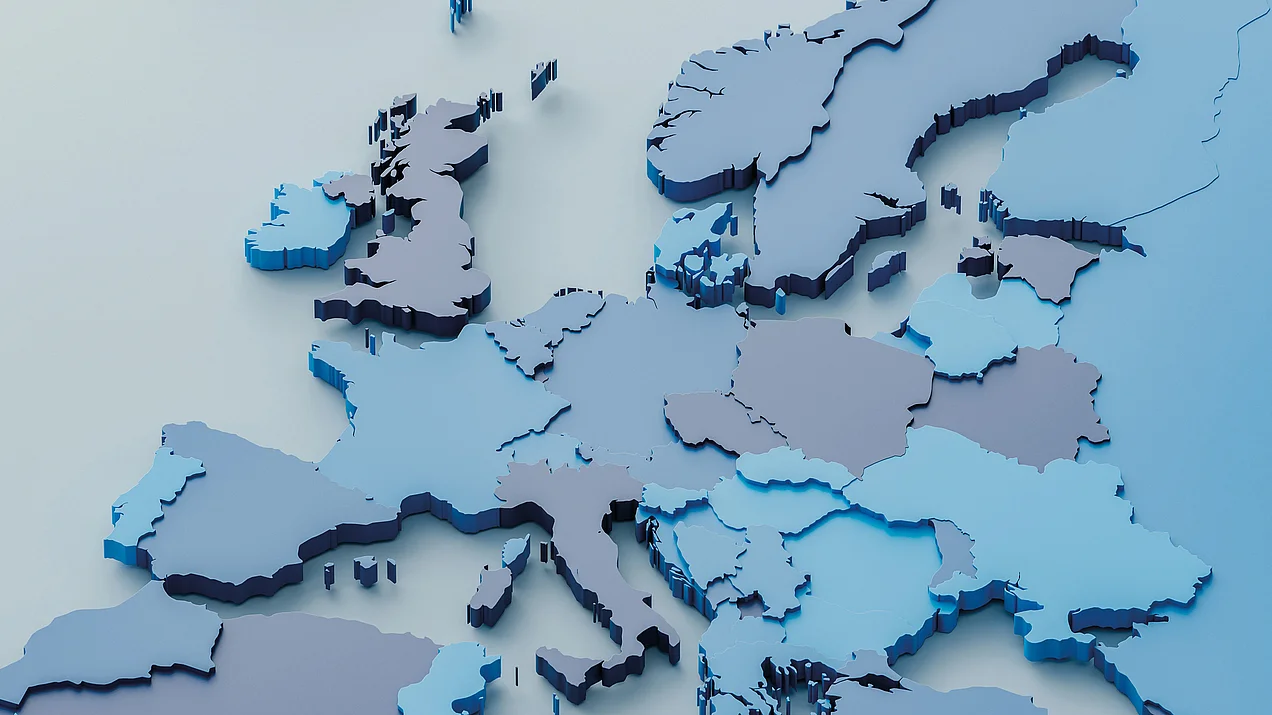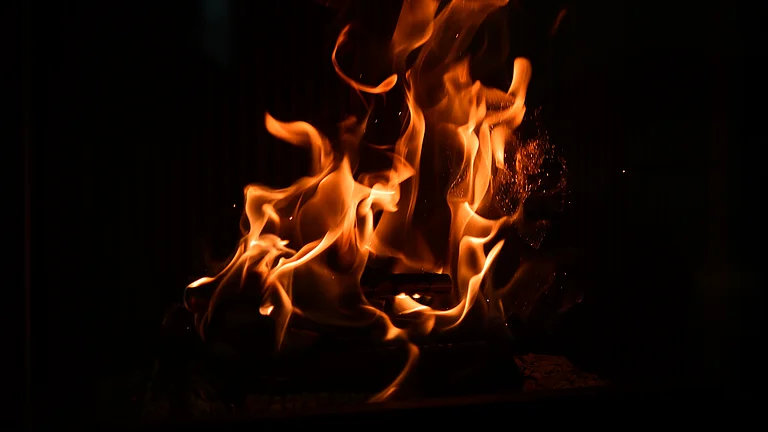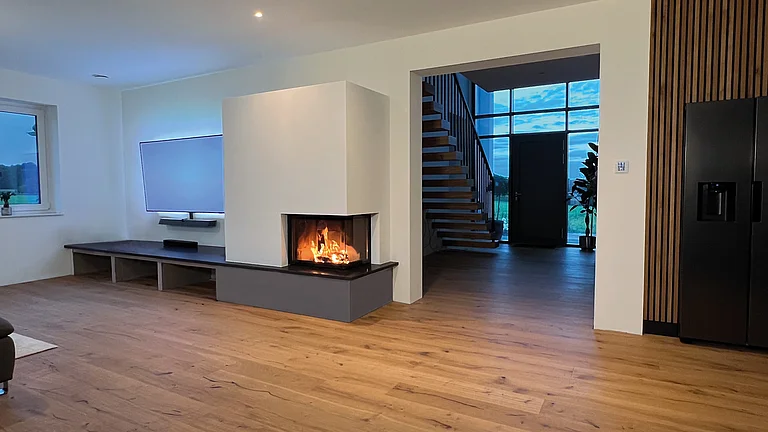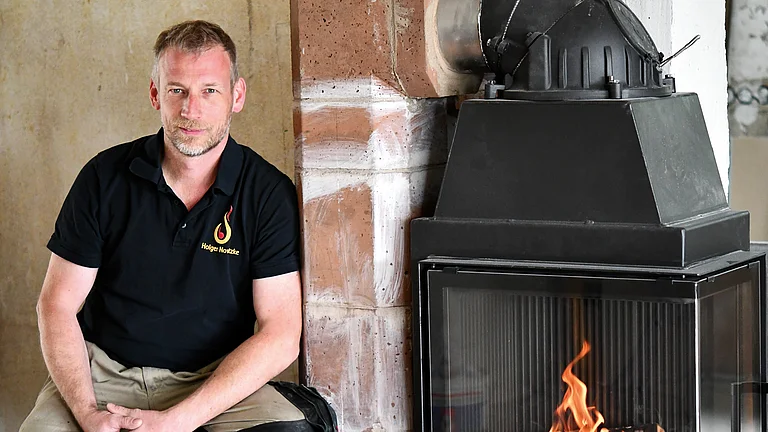
Ecodesign is the acid test - but not the only challenge
This is a personal assessment by Dr. Johannes R. Gerstner, MBA, political advisor to the stove industry. With his many years of experience in politics and association work, he sheds light on the current challenges facing the stove and tiled stove industry. His statement shows why clear decisions are now needed for a rational energy policy that recognizes innovation and secures the future of the industry.
In recent years, the stove and tiled stove industry has shown time and again that it is efficient and ready for innovation - and it still is today. Craftsmanship, technological development and the trust of millions of people who rely on their stoves and tiled stoves make it clear: these appliances are not the problem of the energy transition, but part of its solution. Quality manufacturers such as Camina & Schmid are representative of the fact that the industry is not standing still, but is constantly developing new answers to technical and ecological requirements. It is precisely this potential that must finally be recognized in Brussels, Berlin and the state capitals.
With the Ecodesign Regulation, the biggest challenge is just around the corner. What sounds like a detailed technical regulation is actually a litmus test for the credibility of European energy policy. The question is whether stoves and tiled stoves will still be allowed on the European market in the future - or whether an entire industry will be gradually thinned out by excessive requirements.
The drafts so far have made the problems clear: test cycles that do not reflect everyday life, limit values that can hardly be achieved even with the latest technology, and transitional periods that would put craft businesses and manufacturers under pressure from one day to the next. Experts have calculated that the certification of a single new model using the new procedure could cost up to one million euros - sums that would ruin many SMEs. At the same time, it is obvious that the existing test laboratories would not be able to cope with such a procedure.
Here it becomes clear that this is not about real climate protection, but about symbolic politics. Realistic test procedures, limit values that recognize technical innovations and transitional periods that keep trade and industry capable of acting would be the right way forward. After all, the industry has long since delivered: Automatic combustion control systems, catalytic converters and electrostatic precipitators significantly reduce emissions. Ecodesign is therefore the acid test: either Europe regulates with a sense of proportion or ideology prevails over common sense.
But Ecodesign is not the only construction site. The EU deforestation regulation threatens the next wave of over-regulation. Its aim of preventing the clear-cutting of tropical rainforests is the right one. But its implementation is overshooting the mark. In future, even small forest owners in Germany will have to supply geodata, provide evidence and fight their way through mountains of red tape. Yet the principle of sustainable forestry has applied in this country for decades. It is disproportionate that a forester in the Sauerland should have to go through the same documentation effort as an international tropical timber company. The consequences for an energy source that is regional, renewable and crisis-proof are rising costs, unsettled customers and declining acceptance.
The enforcement of the 1st BImSchV also shows deficits. The transitional period for old wood-burning and tiled stoves expired at the end of 2024, but 1.7 million appliances are still in German living rooms. In Bavaria, they are allowed to continue operating until the next fireplace inspection, which corresponds to a grace period of up to three and a half years. In Hesse, on the other hand, the hard line applies: immediate decommissioning, retrofitting is not permitted. In between are 14 other federal states, each with their own rules. The result: a patchwork quilt that unsettles operators, overburdens the trade and squanders trust. The industry
is therefore calling for an amended 1st BImSchV.
This will create uniform rules throughout Germany with clear, realistic deadlines, practical transition options and binding standards. An end to emission measurements on existing appliances by chimney sweeps is also necessary. These measurements do not benefit the environment, consumers or the trade. Instead, we need replacement, retrofitting and training.
The advantages of wood-burning and tiled stoves are obvious: When burning, wood only releases what it has previously bound. It remains in the natural carbon cycle and does not release any new fossil carbon into the atmosphere. Regrowing trees bind additional CO, while the crown wood and roots in the forest continue to store carbon. This balance is much better than critics often portray. It is also dramatically cheaper than fossil fuels, some of which we have to import from countries whose unjust regimes are made even more stable by our remittances.
What's more, modern stoves and tiled stoves work efficiently and produce low emissions. They offer something that no other heating technology can - resilience.
They work even when electricity and gas fail. They provide heat in crisis situations, relieve the load on grids at peak times and create trust among people. Hybrid solutions with heat pumps show that both systems work together perfectly. They stabilize grids, reduce peak loads and make the heating transition crisis-proof. Without stoves and tiled stoves, there can be no resilient heating transition.
All of this shows that the problem is not a technical one, but a political one. The industry has delivered, politics must follow suit. What is needed is a rational energy policy that combines ecological responsibility with social reality. No more symbolic politics, no more bureaucracy, no more patchwork, but solutions that work.
The industry's interest groups have been campaigning for this for years. There are numerous associations that do valuable work in this area. Here are three examples: The German Stove Manufacturers' Association pools the strengths of the trade. The #ofenzukunft initiative has shown how strong joint action can be, for example in resisting excessive ecodesign drafts. And the European Stoves Working Group ensures that the industry's voice is also heard in Brussels. These examples are representative of a vibrant association landscape that does indispensable work overall.
This commitment is a great asset and makes it clear what it is all about: unity, clarity and a focus on the future.
The tasks are huge. But the technology is available, the arguments are on the table and the community is strong. That's why: stoves and tiled stoves are here to stay, not out of nostalgia, but because they have a future.

Dr. Johannes Gerstner
MBA Political advisor to the stove industry
Dr. Johannes Gerstner works at the interface of science, journalism and communication. He has been advising companies and associations for many years, with a particular focus on renewable energies and the energetic use of biomass. Through his journalistic and advisory activities - including for the European Fireplaces Working Group, the Chimney Technology Association, the German Stove Builders' Association, the Central Association of Building Services and the Clean Exhaust Association - he has extensive knowledge of current developments and challenges in the stove industry and related trades.


